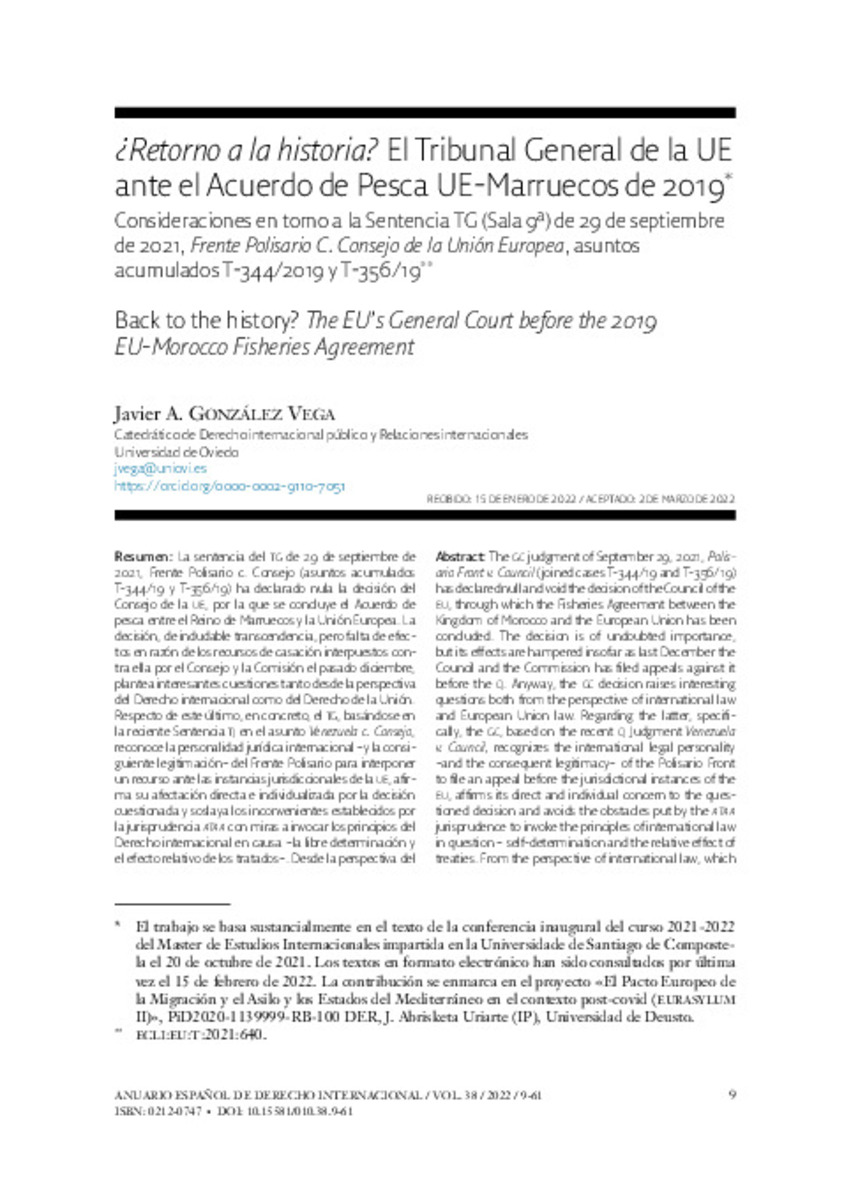«¿Retorno a la historia?» El Tribunal General de la UE ante el Acuerdo de Pesca UE-Marruecos de 2019. Consideraciones en torno a la Sentencia TG (Sala 9ª) de 29 de septiembre de 2021, «Frente Polisario C. Consejo de la Unión Europea», asuntos acumulados T-344/2019 y T-356/19
Other Titles:
«Back to the history?» The EU’s General Court before the 2019 EU-Morocco Fisheries Agreement
Keywords:
UE
Marruecos
Sáhara Occidental
Acuerdo de pesca de 2019
Subjetividad jurídica internacional del Frente Polisario
Afectación directa e individualizada en el recurso de anulación
Libre determinación
Efecto relativo de los tratados
Invocabilidad de los principios del Derecho Internacional ante la jurisdicción de la UE
Exigencia de consentimiento del pueblo del Sáhara Occidental
Publisher:
Servicio de Publicaciones de la Universidad de Navarra
Citation:
González-Vega, J.A. (Javier A.). "«¿Retorno a la historia?» El Tribunal General de la UE ante el Acuerdo de Pesca UE-Marruecos de 2019. Consideraciones en torno a la Sentencia TG (Sala 9ª) de 29 de septiembre de 2021, «Frente Polisario C. Consejo de la Unión Europea», asuntos acumulados T-344/2019 y T-356/19". Anuario Español de Derecho Internacional. 38, 2022, 9 - 61
Statistics and impact
0 citas en

0 citas en

Items in Dadun are protected by copyright, with all rights reserved, unless otherwise indicated.








